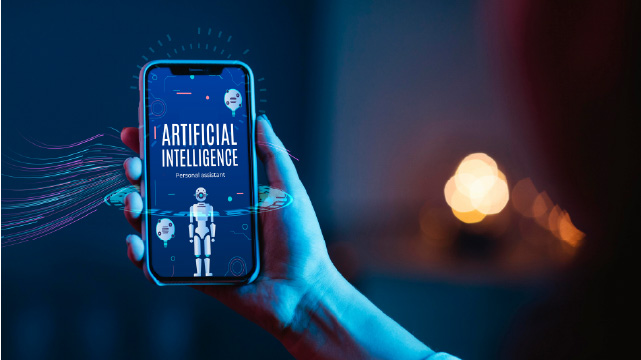How AI In Mobile Apps Change Future Adaptation Of Technology?
Introduction
In the ever-evolving landscape of technology, one phenomenon stands out as a trans-formative force: Artificial Intelligence (AI). While AI has made significant progress across various domains, its integration into mobile apps is revolutionizing the way we interact with technology. From personalized experiences to enhanced efficiency, AI-powered mobile apps are reshaping the future of technological adaptation in profound ways.
Understanding AI in Mobile Apps:
Before going into the impact of AI on future technology adaptation, it's crucial to know why AI in mobile apps is required in the context of mobile applications. AI refers to the ability of machines to mimic human intelligence and perform tasks that typically require human cognitive abilities, such as learning, problem-solving, and decision-making. In mobile apps, AI algorithms analyze vast amounts of data to understand user behavior, preferences, and patterns, enabling apps to deliver suited experiences and optimize performance. Now, let’s understand how AI in mobile apps changes future adaptation of technology:
Personalized User Experiences:
One of the most notable ways AI is changing the future of technology adaptation is through personalized user experiences in mobile apps. By leveraging AI-driven analytics and machine learning algorithms, mobile apps can gather insights about individual users' preferences, habits, and interests. This enables apps to deliver personalized recommendations, content, and suggestions that are identical with each user on a deeper level. Whether it's suggesting relevant products, curating personalized playlists, or providing targeted content recommendations, AI-powered mobile apps enhance user engagement and satisfaction by offering tailored experiences that cater to individual preferences.
Enhanced Efficiency and Productivity:
Another significant impact of AI on mobile apps is the enhancement of efficiency and productivity. AI algorithms streamline various tasks and processes, automating repetitive or time-consuming activities and freeing up users' time for more meaningful goals. For example, AI-powered virtual assistants like Siri, Google Assistant, and Alexa can perform tasks such as scheduling appointments, setting reminders, and answering queries, thereby simplifying daily routines and improving productivity. Additionally, AI-driven predictive analytics enable mobile apps to anticipate user needs and proactively provide relevant information or assistance, further enhancing efficiency and streamlining user interactions.
Improved Decision-Making:
AI's ability to analyze vast amounts of data and derive actionable insights is also revolutionizing decision-making processes in mobile apps. By harnessing AI-driven analytics, mobile apps can make data-driven decisions in real-time, enabling faster and more accurate responses to changing circumstances. For instance, AI-powered recommendation engines can analyze user preferences and purchase history to suggest products or services that align with their interests, leading to more informed purchasing decisions. Similarly, AI-driven analytics can help businesses optimize their marketing strategies, product offerings, and customer experiences by identifying trends, patterns, and opportunities for improvement.
Advancements in Augmented Reality and Virtual Reality:
AI's integration with augmented reality (AR) and virtual reality (VR) technologies is unlocking new possibilities for immersive and interactive experiences in mobile apps. AI algorithms enhance the realism and interactivity of AR and VR applications by enabling real-time object recognition, scene understanding, and gesture detection. This opens up opportunities for innovative applications across various industries, from gaming and entertainment to education, healthcare, and beyond. Whether it's exploring virtual environments, interacting with virtual objects, or engaging in collaborative experiences, AI-powered AR and VR mobile apps offer users attractive experiences that push the boundaries of traditional mobile technology.
Conclusion:
In conclusion, AI in mobile apps is driving a standard shift in how we interact with technology, shaping the future of technological adaptation in profound ways. From personalized user experiences and enhanced efficiency to improved decision-making and advancements in AR/VR, AI-powered mobile apps are paving the way for a more intelligent and immersive digital future. As AI continues to evolve and mature, its integration into mobile apps will play an important role in shaping the next generation of technology and redefining the human-machine interface. Embracing AI in mobile apps is not just about embracing the future – it's about embracing the limitless possibilities that lie ahead.

Comments
Post a Comment